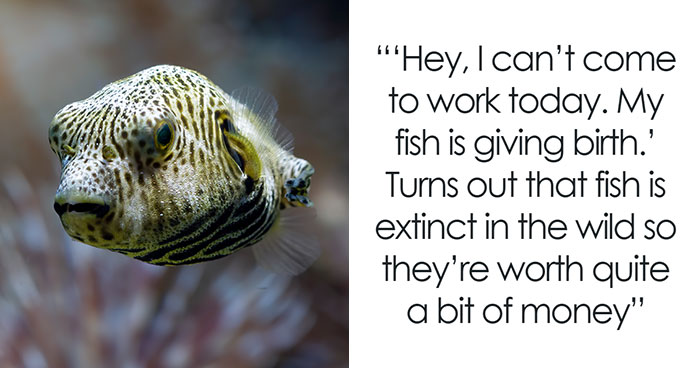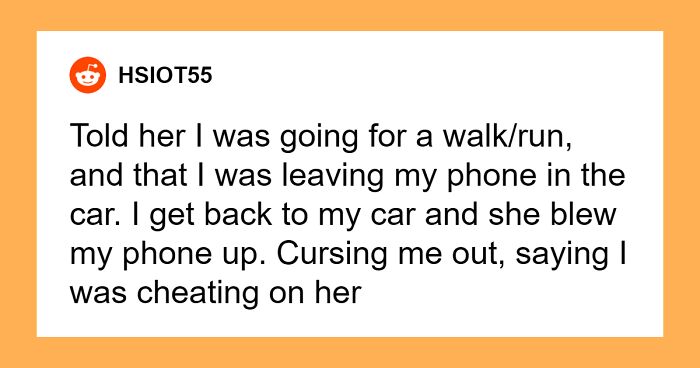
77 Of The Most Fascinating Psychological Effects And Phenomena, As Shared By People In This Online Thread
It's easier to deal with something you can actually see. An enemy on the battlefield. A broken bone. A flat tire. But when the 'enemy' is invisible, for example, emotional and psychological trauma contributing to many psychological effects and outcomes such as depression and anxiety, dealing with it becomes even more complicated. How do you deal with, or even more importantly, understand, something you can't see? This might be one of the reasons why the human psyche is one of the most difficult subjects to study.
And although the science of psychology is quite good at differentiating psychological effects from psychological phenomena, it might be more challenging for an ordinary human to distinguish between the two. And to be fair, the margin is somewhat blurred. We often refer to effects as the outcomes of how we act and think caused by things such as sleep deprivation, substance abuse, childhood emotional neglect, etc. But psychological effects such as the 'placebo' or 'bystander' effect can also be referred to as examples of psychological phenomena. And these interesting phenomena continue to fascinate both experts in the field and the ordinary public. Some time ago, a member of the AskReddit community asked, "What do you think is the most interesting psychology phenomenon?" And judging by the vast number of comments, many individuals find it fascinating how the human brain works.
We have gone through the whole thread and compiled some of the most interesting responses that many seemed to agree with or which spiraled into separate and even more extensive discussions. Scroll further below and give those a read. Do you agree with the thoughts of the Redditors? What psychological phenomenon do you find the most fascinating? Or most difficult to grasp? Share your thoughts in the comments!
This post may include affiliate links.
"Insomnia. As a chronic insomniac myself I’m genuinely puzzled by my brains inability or even refusal to sleep despite being physically exhausted and/or not having slept enough for days on end. Currently averaging 4 hours for last 3 weeks straight."
me too friend. i’m currently on medication for my insomnia and it still sucks. i literally cannot up my dose because i’ll get serotonin syndrome
"We tend to hate people that have the same flaws and make the same mistakes as we do." argon_13 comments: "When I drive I hate cyclists. When I'm on my bike I hate drivers." cinnapear replied: "I hate both all the time."
This is why so many anti-LBGTQ Republicans get caught in gay trysts. (Not that being gay is a flaw. Just the way they do it.)
"Imaginary audience. When walking by someone and they laugh you'd think they're are laughing at you, it seems as if every action done by you is seen by an audience. Mostly affects very anxious people."
"The irrationality of humans when it comes to some basic decision making. For example: Imagine you wanted to buy a nice pair of jeans so you go to the store and find a pair you really like. The price is $60. Before you buy it you check your phone and find out a store 15 minutes away has the same exact pair for $20. Would you make the drive and go get the cheaper pair? Most people say yes, they would. Now imagine that you've saved up a bunch of cash and are gonna go to the store for a nice refrigerator. You find the one you like for $2,440. Before you buy it you find the same exact one 15 minutes away for $2,400. Assuming you couldn't price match, would you make the drive out for the cheaper one? Most people surveyed say no, they would not, despite being the same amount of savings. Most people, when asked why they would drive out for one and not the other, cite the relative difference in price but this is irrational behavior. Rational behavior would dictate that it shouldn't make a difference. Regardless of the relative savings, $40 extra in your pocket is $40 extra in your pocket and that's all that should matter to a rational being."
What about factoring in fuel costs? Would it make the savings on the item worth the drive? Genuine question.
"False memories. How you can implant false memories in someone over time. And they believe they are real and their reactions are based on their own reality." tobimay replied: "This is actually a real problem when trying to solve bad traffic accidents. When people are in shock, even the questions by the police can make them think that something happened."
There was an experiment done where they showed people pictures of bugs bunny at Disney world. And those people would remember going to Disney world and meeting bug. Which of course never happened.
"A really fun one for me right now - the brain's ability to worry itself to the point of manifesting bulls*it physical symptoms all over the rest of the body. I'm worried about a thing, so now I'm just nauseous all week, my head hurts, I'm tired, and I'm pretty sure I'm getting an ulcer. Thanks, brain."
I feel this one! Anxiety 》》fear 》》 intense headaches, loss of appetite and heart palpitations.
"The amount that the words we use (and think in) change how we act. People who speak Spanish are less likely to blame someone for dropping something because the language is "the thing was dropped" rather than "you dropped the thing."
I wish this was universal. I try to avoid blame when my kid has an accident of some kind, because you already tend to feel bad if you break something accidentally.
"The doorway effect. We've all experienced it. You need something in a different room, yet once you get there you can't remember what it was that you needed. This is believed to be caused by passing through a doorway, which tricks our mind into thinking we have entered a new environment, and thus you subconsciously discard whatever chain of thought you had in your previous environment. It's probably useful in nature to help adapt to a sudden change in your surroundings, but it's a bitch when you have to walk back into the other room to remember that you went in the walk-in cooler to grab tomatoes."
"How we judge people on their actions, but how we judge ourselves on our intentions."
"The Gambler's fallacy - specifically, how the same series of events can lead to two different conclusions. Assume you have a perfectly fair coin; you toss it five times and get five heads. You then ask two people what they think the sixth toss will be. Person A thinks that heads are obviously on a roll, so he bets on heads. Person B thinks that heads have happened too many times, which means that tails have to come up, so he bets on tails. They're both wrong: the odds of the sixth throw remain the same, regardless of what happened in the past. (Note that this only works if the coin is fair!)"
"The placebo effect. The idea that belief in something can actually have a positive impact on the body just seems so crazy to me. Also helped me realize inversely why stress and anxiety can take such a toll on you." Why_So_Slow replied: "Funny enough, placebo also works, when you know it's placebo... somehow, deep down, there is something in you that wants to believe despite all reasonable arguments against it. Also, nocebo is a thing... when you expect something to harm you, it will. It makes a lot of treatments complicated - on one hand, you want the patient aware of the side effects, on the other, you don't want them to "generate" them by the nocebo effect."
The nocebo when someone tried to overdose on sugar pills that they thought were medicine. He recovered when the doctor told him the truth.
"When you stare at a word in your language for a long-ish length of time and you start to think that it’s spelled incorrectly or it isn’t a word."
It’s called Semantic satiation. When you read/hear a word or phrase for enough time, it loses meaning. Normally when you encounter a word, you associate a meaning with it but if it’s repeated too much, the brain starts to look at other aspects of the word like how it sounds, the way the letters look etc and you stop associating a meaning with the word making it look like rubbish
"I'm amazed at the number of people who freeze in a disastrous situation like a sinking ship. People who survive tragedies like that always report that there's not nearly the amount of panic and confusion that you'd expect. A lot of people freeze in place and simply can't move, even as the water is rising around them. Families have been split up in situations like this, where two of them can move, but the other three can't." ColdNotion comments: "Yep, the freeze reaction doesn’t get the attention it deserves, and it’s something that’s actually really important for us to understand. Freezing is part of the same process that triggers the fight/flight response and usually occurs when people can’t do anything to actively exit or combat what’s causing them stress. Freezing is a really old response evolutionally speaking, and is something of a last-ditch way the body tries to save itself. As a result, people tend to go into fight/flight first, and then eventually freeze if they still can’t control the stress they’re experiencing."
For prey, freezing can sometimes help because the predator won’t be able to detect their movement easily
"The Mandela effect. Somehow it's possible for a very large amount of people to have a shared memory of a certain thing while everyone else has a completely different, but still shared one. The biggest example is the whole Berenstain/Berenstein Bears situation."
"Déjà vu. To have such a strong feeling that an instance has happened before is crazy... like you experienced it in the past, or dreamed of it."
Most vivid for me was a dream I had. me and a group of friends were hanging out. But I remember waking up in the morning and remember it so well and had questions, like why were we hanging out in this little one room house, why were they throwing s**t at me. A few weeks later, we were at my buddy's hunting cabin, and I was stoned out of my mind when the scene of them throwing things reoccurred. My stoned a*s had no words, even sober I have few words for it
"I find the 'the call of the void" an interesting phenomenon. It's that feeling you get when you stand on a high place and subconsciously think, 'I could totally jump off right now' but you don't really want to and you don't actually jump. I experienced this multiple times on my most recent trip to Europe."
I get the urge to jump from very high places. Once, I was looking over a dam wall and had to move into the middle away from the edges. Horrible feeling.
"Dunning-Kruger effect. It's when someone doesn't know enough about a subject and thinks they know much more than they actually do."
"Presque vu. When something is on the tip of your tongue but you can’t remember it."
"The bystander effect. Everyone thinks they would help if something happens, but the effect says that the more people there are, the less someone is going to help."
It's because we all expect that there is someone that would be more qualified when there is a large number of people. And the larger the group the more probable it is that there will be someone there that is more qualified than most of the other people.
"Folie à deux - that two people can have the same shared psychosis or better yet HALLUCINATIONS is just insane. The transference there... as a psych major this one gets me."
My parents have this. My mom is ultra paranoid and a perpetual victim. My dad absolutely 100% takes on her views of everything, no matter how skewed. It's very disturbing to hear him talk and it's her thoughts flying out of his mouth.
"Right now, how psychology influences elections and political affiliations. Some of it is really depressing - like name recognition or even a candidate's last name has an effect on how people vote. I wish I still had the study, but it found people liked to select simple last names. So Joe Smith will beat out John Jacob Jingleheimer Schmidt, policy is irrelevant."
"If you get yourself to be really happy and excited to see other people, they will react the same to you. It doesn't always happen the first time, but it will definitely happen next time. Time and again this has always worked fine for me." MasterRonin comments: "I do a more subdued version of this. Basically, if I want to be friends with someone, I just treat them like we've known each other for years. Most of the time it works and they treat me the same way."
Can confirm. When I first met my partner, he made this "surprised happy face" whenever he looked at me, and that's how I got hooked.
"Childhood amnesia. The fact that up until a certain point, you don't remember things. My first memory isn't until I was 6. My wife's is when she was 2. Hers seem to be emotionally based. So they're sparse and fleeting. Mine are like I just suddenly had a switch flipped, and there I was."
My earliest memory was I think when I was 1. All my vivid memories are from between ages 2 to 7. The rest of the memories that I recently got are sometimes fuzzy or sharp
"Phantom limb syndrome, the ability to feel sensations and even pain in a limb or limbs that no longer exist. Phantom limb syndrome is characterized by both nonpainful and painful sensations. Nonpainful sensations can be divided into the perception of movement and the perception of external sensations (exteroception), including touch, temperature, pressure, vibration, and itch. Pain sensations range from burning and shooting pains to feelings of tingling “pins and needles.” While phantom limb syndrome occurs only in amputees, phantom sensations may be perceived in people who have survived strokes but lost function of certain body parts or who have spinal cord injury or peripheral nerve injury."
"Planning fallacy. We always believe that things will take less time than they do, even when we've done this activity before. It's very strange to me." Gramage replied: "If you're gonna be late, tell the person you're going to be later than you think you are. 'Hey, sorry boss I'm gonna be 30 min late today.' Then you show up 15min late, the boss will be less annoyed because now it feels like you're early even though you're still late. Source: I was late often."
The opposite of this happens too. We often assume tasks will be much harder or take much longer than they do. It's our brain's way of avoiding work. Better not get started on that, it will take too long or be too hard. Once you get started it's not that bad.
"Confirmation bias. The brain so actively tries not to see things it is fascinating."
Isn't it more that it looks only at those things it wants to be true? Or both things occur at the same time. 😳
"When there are accidents and suddenly the rush of hormones makes people super strong that they can lift cars and stuff. Yeah, that's pretty interesting." Pachulski replied: "More specifically, it’s called hysterical strength."
I think people already have that strenght, it’s just that the body keeps it “locked” so that you don’t hurt yourself by damaging any muscles or bones
"Precognition dreams. Sometimes I dream of something from the future. I can't remember it when I woke up until that moment actually happened and I have this déjá vu feeling with the thoughts I had when I dreamt. For example, in the dream, I was in a different house with a different bathroom and I couldn't recognize it. Months later, I'm in that bathroom, brushing my teeth."
I had a dream that my friend told me in a specific room in my school that an event was going to be at 10 o‘clock. All of this happened exactly as I dreamt it the very next day
"Nostalgia. Memories overall, but nostalgic moments that appear out of nowhere, from a song or smell or any of the 5 senses are insane to think about sometimes. Memories are a way for us to learn from outcomes, whether going over there gets you food or you run into danger, but nostalgia is pure happiness. It usually has no rhyme or reason to it besides feeling happy at the moment."
"You can look straight up towards the sky in a public location, and everyone else around you will look up, too." stuwallace47 replied: "Similar results if you start screaming on a flight."
"Synesthesia. This happens when you experience one sensory stimulus and it triggers another. For example, you hear a splash and think of the color blue. I get this quite vividly with tastes. If I see a plastic fork, I always taste ketchup for some reason."
I get sort of tastes/mouthfeels for words, “smile,” “slick,” “oily,” “stone,” etc.
"Dissociative fugues. They're pretty rare, but the idea of the brain just shutting down and allowing for reversible amnesia is so fascinating. There are documented cases of people disappearing for years at a time and starting whole new lives and not remembering anything about their past."
"Narcissistic personality disorder. This disorder is so insidious that its very nature is to convince the sufferer that it doesn’t exist and that everything is great... while that person ruins lives and destroys families. You couldn’t even design something so terrible."
"The attachment theory. And how parent-child relationships from when we're babies affect how we act and trust people in adulthood."
"Intuition. That knowing without knowing. I don't know if it's the head, heart or the gut but intuition has always fascinated me."
Always go with your gut feeling. If I had, I wouldn't have had an ex-wife!
"Stockholm syndrome is pretty interesting. You probably all know what it is already but for anyone who doesn't. It's when a victim of kidnapping falls in love with their kidnapper and it's more common than you'd think."
Not necessarily "falls in love" but come to see their point of view and empathise with them. They're just a captive audience for brainwashing, and most cases where it's been observed were politically-motivated, carried out by people who'd already been indoctrinated and were passing it on to their victims.
"Capgras syndrome. It’s a psychiatric disorder where you believe the people around you are ‘imposters’ despite recognizing that they look/act/sound the same. It can come from a disconnect between the emotional brain regions and visual regions. I believe there are cases where a patient will overcome the imposter sensation by speaking on the phone with someone (so having no visual information). I’ve also seen it in people who suffer from schizophrenia."
I've had a few patients with this. Very sad for their families when it happens.
"Hysterical pregnancies. The individual is so obsessed/convinced that they are pregnant that their body responds! They may miss periods, hold weight in their belly, swollen breasts that may even lactate, it's incredible."
"The Halo effect. Just because of how freaking powerful it is. The first time I heard about it, I was just kinda like, 'Yeah, of course, everyone knows that' as if I knew better and I was above succumbing to it. Boyy, have I realized just how much I fall prey to it too without being aware of it, it's like people just unconsciously have more goodwill and patience with good-looking people, and it's kinda hard to fight against that even when you're aware of it cause it's such a visceral instinctive reaction to be drawn to beauty."
When I was in college, drunk at a party, a beautiful woman walked by and I'd have sworn her feet weren't touching the ground. The small part of my brain that knew this wasn't possible did a double-take. I looked at her feet and it seemed she was floating 6" off the ground. So I can imagine where our ancestors dreamed up god's and goddesses.
"The differences between male and female brains. For example, when two young boys are given chairs and told to sit and have a conversation, they almost always put the chairs next to each other and don't have strong eye contact. When asked the same of two young girls, they will almost always put the chairs facing one another and have stronger eye contact. Things like this create problems later in life in some relationships where a woman won't feel validated in conversation because the man isn't giving them direct eye contact. However, he is still listening just the same."
"Prospect theory, the idea that people perceive gain and loss unequally, where a loss has about twice as much impact on a person as a gain of the same amount. People will take unnecessary risks to avoid loss."
"If you're talking to someone intently and you hand them something, more often than not they'll take it. Doesn't matter if it's a book, a pen, or an orange. No idea what the phenomenon is called or if it's even psychological, but it's made for some great pranks." delvach comments: "Especially when you're the pilot."
The opposite works too. And supposedly if you ask someone for something multiple times you'll start to form a mini bond with them. So if you are sitting next to someone at a bar, you ask them for a napkin. Then do it again shortly thereafter. You'll start to build a rapport. Unless you are a creeper. Then, nevermind. lol
"The Monkeysphere. How your brain has evolved to have an upper limit on the number of people you can conceptualize as people. After which they just become 'people'. And are then clumped into groups. The perception of which can be warped drastically by hearsay, the media, your own bias, etc. This goes a very long way to explain why many things in human society are the way they are."
I think it also may depend on whether or not you know the people. If I see a group of 30 people that I personally know, have held conversations with, they are going to appear as individuals. But if it's 30 strangers they are going to appear as a group.
"How people who hate themselves hate people who like them."
Seems natural. If they like you more than you do, they're either stupid or uninformed. Otherwise, you'd have to wonder if your low opinion of yourself is wrong, making YOU the idiot.
"It’s not so much a psychology phenomenon but I love how easy misdirection can be used. As an amateur magician, I’m always amazed at how easy it is to make a person look the wrong way or focus on the irrelevant."
"I always heard this psych friend of mine talk about this thing that happens if you can have a situation created where a room is absolutely silent. He said they have one at a recording studio somewhere, like a room where you could get flatline zero on a decibel meter. He says if you go in there (not playing an instrument or anything, but just go in and sit) you can only take a few minutes of it before you start to go crazy. Some can take more some can take less but something about hearing your own heartbeat start to get louder and louder clearly, and all your body noises, and absence of anything else, just starts to drive you nuts. I've never been, but I'd like to try it out. Just so long as I could be let out when I wish!"
"Kinda a basic one but still interesting, when you yawn others yawn as a sign of affection. It's kinda a little-known fact and I always find it funny." Taffy-Giggleberry replied: "I yawned reading this."
"Alien hand syndrome. Essentially your left hand develops its own personality and doesn't over your conscious thoughts. Doctor House did a great episode about this. The really interesting part is the implication that we all have two personalities inside of us."
"How I can have a surprise in my dream. Like something will happen and I'll be confused about it, then someone will explain it by giving new information, and then it makes sense. But ALL of this is created by my own brain while I'm dreaming. How can I reveal new information to myself to explain something?" phoeniciao replied: "This also fascinates me, my brain has created things in my dreams that baffle me to this day, but isn't my brain supposed to be me? So where are these creations coming from?"
"How laughter affects people. Laughter is basically the ying to stress's yang, which inspires me to make people laugh when I can, as I don't know what they're going through. Laughter increases things like dopamine, and can even help soothe physical pain sometimes." user replied: "Even smiling, (lifting the corners of your mouth) alone has positive effects on you, even if you force it."
"Dissociative disorder. It's a mental disorder that involves experiencing a disconnection and lack of continuity between thoughts, memories, surroundings, actions, and identity. People with dissociative disorders escape reality in ways that are involuntary and unhealthy and cause problems with functioning in everyday life." Mikkiep replied: "I don't have a dissociative disorder so to say, but the scariest symptom of my severe anxiety is dissociating. The world does not look as real. The sunlight on the earth looks superficial, sounds are a little quieter or much louder, and houses and trees look a little different; like it's a hyper-realistic rendering of the world that's almost spot on but not exactly. I feel like I'm dreaming and become completely numb emotionally. I'm just there, separated from everything, and feel like I'm not real. I could stare straight ahead for hours in this state and not think of a single thing. It's awful and I would trade that mental response for a panic attack any day."
"The repression of traumatic memories." stryker161 replied: "It's so weird! Went through a rough time a long time ago and self-harm was involved, apparently. Because later on, I couldn't remember doing that to myself. The scars are there and maybe there's a very vague memory of a moment somewhere but nothing that will make me say, 'Ah, yes, I remember when I did this'".
I couldn’t move for a month due to crippling pain. Literally couldn’t move, couldn’t do anything by myself, only time I’ve ever had s**cidal ideation… Can’t actually remember anything specifically from that month. I think I might have PTSD though cause whenever I have similar pain I get almost a full blown panic attack.
"Normalcy bias. The inability to recognize a situation, (especially that of danger) for what it is because the brain wants to regulate the event and normalize it according to what it typically used to. For example, I had a friend and his wife visit the USA from Canada. During their stay, they witnessed a felon run past them, chased by cops, and get shot. (Not fatally) they were both so unaccustomed to firearms and shootings that they went about their business like everything was fine. Then, about 15 minutes later, both of them had the sudden realization of, 'Holy s*it, we just watched a guy get shot by the police!"
"Feeling when someone is looking at you. Creepy sometimes."
Every time I close a door when I’m in a room, I always expect someone with a knife to be standing there. I’m getting kind of paranoid about it and I don’t know what to do
"Playing. When 2 animals play with each other, they both communicate aggression, they show fangs, and claws, they bite, they go for the neck, etc. Everything about it should communicate danger, but they never feel endangered, even when one animal accidentally hurts another. This happens even when animals are playing with animals they have barely known for some time. It blows my mind how the right context completely transforms all the communication between animals who play." lauren_strokes replied: "My understanding is that dogs have little pauses throughout a play fight that confirms it's just playing. And that dogs get so riled up when humans play fight because they sometimes can't tell when it's for real."
"That you're more likely to like someone if you think that person likes you."
God yes. I naturally don't like people when I feel like they don't like me
"It seems crazy that we can not use our intellect to override fears and phobias. For example, if you have a fear of spiders, you know they can't hurt you and aren't dangerous, but even if you tell yourself this and understand this, the fear remains."
Reminding yourself of this logically can reduce the fear. Also, desensitization helps.
"Dreaming. Even though everyone does it, it's amazing that our minds create virtual realities for us nightly. If you can lucid dream, it can be more entertaining than any game technology has invented." thudly replied: "Why do our brains create nightmares, though? It seems so masochistic for your own mind to create nightmarish scenarios that would never happen in real life, or simply relive bad memories over and over. This has always baffled me. Normally our biology avoids pain at all costs. But the brain seems to obsess over it while we dream."
Some theories say that we get nightmares as a way for our brain to tell us what not to do. It may have helped our ancestors but it’s kind of useless in modern times
"Why do people have favorites? Like a favorite color or a favorite flower?" User replied: "Not being able to choose, could mean death. Therefore the brain collects fragments of positive memories, which will guide you throughout the rest of your life. One of these fragments could be that you have a preference for the color red because you associate it with a lot of childhood memories (Charizard, Ash Ketchum Hat, Pikachu Cheeks) etc."
Sometimes you have a favorite something just because it pleases you more than other things of a different ilk. Color is a great example. I tend to like greens and browns more than all the other colors just because they feel/look more earthlike and naturey to me. That's the sole reason I like them more.
"Cute aggression. I always thought the link between cuteness and violent urges was ironic. Every time you see something extremely cute something in your brain says, 'I have to squeeze its little head off.'"
"Cognitive dissonance. If our actions don’t match up with our opinions, beliefs, wishes, etc., something will give and either our actions will change or our mindset will. Doesn’t sound very interesting until you use this to 'hack' your life in a sense. Ever heard of the law of attraction? It’s kind of like this. The law of attraction claims that if you want something, just pretend like you already have it. Envision that you have it and you live it. Want to lose weight? Envision you at your ideal weight every night. Sounds like complete BS and in a sense it is, BUT it applies to cognitive dissonance and if you play your cards right it works. Me, I was a very shy person. I wanted to become talkative and get friends and guys. So, I would tell myself, 'I’m not shy! People love me! I have tons of friends!' My beliefs did not match up with my actions (I wouldn’t talk to people) but EVENTUALLY, something gave and I started to act in accordance with my beliefs. Either you will give up on pretending or you will become how you believe yourself to be! Something to think about. The law of attraction isn’t a proven thing but cognitive dissonance is."
"Mass hysteria. The fact that our brains can cause us to have symptoms of something serious just because of rumors and fear is pretty crazy."
"Deindividuation. It's the loss of self-awareness in groups often attributed to mobs and how seemingly 'normal' people can participate in illegal behavior such as riots and lynching. You have a decreased self-evaluation of your actions and it's as if the group shares the responsibility and not you for your actions."
"Australian Aborigines have no words for left, right, etc. Instead, they use north, east, south, and west. As a result, they almost always know what direction they are facing, even inside buildings with no exterior view."
The word 'aborigines' is outdated. And there are hundreds and hundreds of different First Nations languages, many which aren't used anymore due to colonisation, which means a lot of First Nations people alive today never learnt their language and were only taught left and right.
"For me, it is the unconscious mind and the fact that it accounts for the majority of our cognitive activity. I think it's interesting how we can simultaneously both know and not know things. It is also interesting (and perhaps even frightening) that we are not running the show to the extent that we think we are, at least not consciously."
"Cotard delusion, a.k.a walking corpse syndrome, where the sufferer genuinely believes that they are dead, don’t exist, or have no internal organs. absolutely crazy. I can’t imagine what it feels like walking around feeling actually, genuinely dead." ameliaaa59 replied: "I experienced this for a period of time after my dad passed away when I was younger. It was terrifying and traumatic. I felt as if I was hollow inside - with no organs or vessels, just empty muscle - and was a ghost that everyone else could see. Thankfully, those delusions don’t plague my life anymore, but it was so dark and awful."
"I've always been a big fan of the Selective attention test. It's a fairly simple experiment designed to test how well you pay attention to the world around you. If you're not familiar with it, give it a try, it's a very short video."
"Pibloktoq or Arctic hysteria which exists mostly among Inuit living in the Arctic region. Sufferers often become agitated, shouting and tearing off their clothes before running naked in freezing temperatures. This continues for hours until they collapse and sleep. They have recovered by the time they wake up and may not remember the event. Interestingly this illness also affects Sled dogs and non-Inuit people."
"Psychosomatic symptoms! How you can have all these physical complaints or symptoms, but physiologically there’s nothing causing it. How things can literally be all in your head! Super interesting!"
"Taijin kyofusho is fascinating since it is primarily a Japanese culture-specific syndrome. It's very similar to social anxiety, but instead of being afraid of embarrassing themselves or other people judging them, they are afraid of offending/embarrassing others with their appearance and bodily functions. It's more prevalent in men, but its lifetime prevalence is 3-13% and changes in severity throughout the lifetime."
This is ingrained by Japanese culture from birth, aka taught, isn't it? So does it qualify as a syndrome? I'm not sure it qualifies as fear. Any Pandas from Japan, please correct me if I am speaking incorrectly. It's taught as an honorable thing from what I understand. To be aware of those around you and not do something to offend said people. Having spent time in Japan, I observed it being practiced by everyone, everywhere (except tourists of course). EXCEPTION: baseball games. Baseball fans really let loose at the games. I even witnessed two separate fist fights during a game between the Tokyo Giants and the Hanshin Tigers. The first one occurred in seats just behind me and the two men were quietly escorted out. During the second one, which took place in the hallway after the game was over, the Prefectural Police just let them fight it out and helped people get around them so as not to get hurt. lol
"Denial. The many answers to evade the truth are very creative." CharlisonX replied: "Denial is rooted in the perception of threat, if you manage to convey the same words in a way that doesn't make it as a threat, you'll shave off most of it."
"Caprgras syndrome- when a person believes that a loved one has been replaced by an imposter. This often occurs when the emotional region of the brain is severed, so the person can physically recognize the individual, but they don’t have an emotional response associated with it. This causes them to believe that the person is an imposter, posing as the original loved one."
"Deaf children in Africa using made-up sign language had not developed signs for describing positioning (under, over, to the right of, etc.). When tested, they could not find a hidden object, even when they watched it be hidden. They couldn't tell themselves in their own minds where to look for it, and so they couldn't find it."
"When Japanese tourists go to Paris, see how not romantic it is, and have crippling panic attacks." Sprayface replied: "I'm surprised to learn the Paris syndrome is apparently a real thing. Who would have thought..."
"Conformity. If you stick a person in a room full of people in on the experiment, and ask them to select the longest line out of three lines, they’ll give the obviously wrong answer if everyone else does too."
"The Cocktail party effect is a form of selective attention and is the ability to focus attention on one auditory stimulus while effectively shutting out others in an otherwise noisy environment. However, that individual can still pick up important pieces of information from the attenuated conversations, like their own name!"

 Dark Mode
Dark Mode 

 No fees, cancel anytime
No fees, cancel anytime 














































































